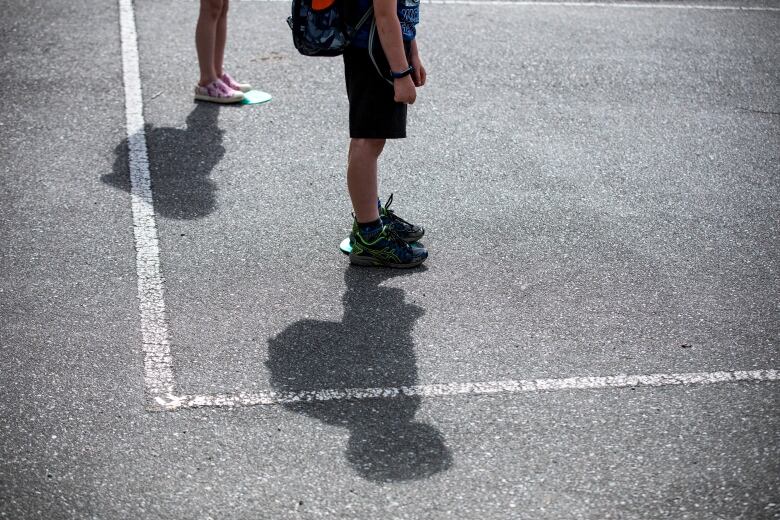Children’s mental health could be ‘significantly’ affected by pandemic, study warns
A new study has found children’s mental health is likely to be “significantly” affected by the COVID-19 pandemic, affirming the worry countless parents have been feeling since March and putting pressure on policymakers to offer more help so kids don’t carry symptoms through to adulthood.
The research review released Thursday found anxiety, depression, behavioural issues and post-traumatic stress could become far more common in children both during the pandemic and in its aftermath. For those children most severely affected, symptoms could increase “by as much as tenfold.”
“The findings showed dramatic increases,” it read.
The study, commissioned by the B.C. Representative for Children and Youth, also said longstanding social and economic inequities in society exacerbate mental health effects of the pandemic.
Authors compare ‘health’ disasters to natural disasters
Its authors looked at five academic reports researching the way previous “health disasters” like pandemics affected children’s state of mind in comparison to “natural disasters” like earthquakes and tsunamis.
One 2009 study found 30 per cent of children who were isolated or quarantined as a result of H1N1, SARS or the avian flu developed symptoms of post-traumatic stress disorder (PTSD).
Meanwhile, only 5-11 per cent of children who were affected by an earthquake, wildfire, flood or hurricane later showed symptoms of PTSD, according to several reports published between 2010 and 2018. Some studies also found children whose parents developed PTSD were likely to follow suit.
Side by side, the studies suggest children are more likely to develop PTSD after a pandemic than a natural disaster.
The authors said they could not find any studies directly investigating the effect of the COVID-19 pandemic on children — likely, they said, because the pandemic is still relatively new and far from over — but in theory, the impact of COVID-19 will be worse than previous pandemics as its impact on day-to-day life has been far worse and far more prolonged.
“We can expect that some children’s mental health problems are going to significantly increase, in particular anxiety, depression, post-traumatic stress symptoms and even behaviour challenges,” said Charlotte Waddell, study researcher and director of the Children’s Health Policy Centre at Simon Fraser University.
Already, as the province trudges into its ninth month of the pandemic, Kids Help Phone has reported a 51 per cent increase in texts from kids looking for help. As for phone calls, the 24/7 counselling service has seen a 70 per cent increase since May.
Inequality raises risk to mental health
Longstanding social and economic inequities in society were found to exacerbate the effects of the virus, impacting children’s mental health disproportionately by affecting family relationships and dynamics at home and the level of help they can access.
Children who already had mental health concerns before the pandemic, particularly anxiety and depression, are especially vulnerable, the review found. For example, children who were already anxious will feel increasingly unsteady, and those with depression will find it harder to cope.
According to Waddell, about 95,000 B.C. children had high mental-health needs before anyone had even heard of COVID-19 and less than half of those children were accessing support services.

Kids also pick up on tension at home if their parents are facing job losses or juggling the responsibilities of parenting and working remotely.
For low-income families, children who relied on school supports like meal programs will have struggled when schools were shut down. Others might not be in a position, financially or geographically, to access any treatment services or counselling.
Waddell told CBC ‘s The Early Edition on Thursday about 30 per cent of B.C. families do not have access to equipment or an internet connection needed for children to access online education or counselling.
“We need to put extra things in place for those kids who are disproportionately affected,” she said.
The study found racism is also likely to contribute to COVID-19 having a disproportionate impact on mental health, noting the flare in anti-Asian racism seen across the province since the virus began to spread.
The authors also said Indigenous children may “also be particularly disadvantaged,” facing systemic racism, inadequate access to health care and other disadvantages created by colonialism.

Opportunity in crisis
The authors, however, went on to say the province can learn from Indigenous communities and their response to the pandemic. It noted how communities have acted to slow the transmission of COVID-19 in their own communities and prevent as many adverse affects of the pandemic as possible, to much success.
“If borne out over time, these successes will be extraordinary,” the report said.
The authors say the province will need to provide treatment and support for children, first addressing existing service shortfalls and then sustaining the proper level of service. The budget needs to be a priority, protected from cuts, as the next generation grows up, they say.
“Our intention here is to say we have a problem [and] we’re very concerned. We have an inadequate and under-resourced system right now, and we’ve got a wave of additional concerns that are coming down the pike,” said Jennifer Charlesworth, the B.C. Representative for Children and Youth.
She said addressing inequities and providing critical supports now will go a long way toward helping B.C. kids in the long run.
“There can be good outcomes even after bad things have happened to kids,” said Charlesworth. “It’s really part of a broader social policy consideration that I would hope this government, the incoming government, will be considering as they move forward.”
To hear Charlotte Waddell and Jennifer Charlesworth speak about the study on CBC’s The Early Edition, tap the audio link below:
The Early Edition13:43Representative for Children and Youth BC asks the provincial government to not forget kids in pandemic response
Jennifer Charlesworth and SFU professor in the Faculty of Health Sciences Charlotte Waddell speak with Stephen Quinn about the impact Covid-19 is having on young people in B.C. and why schools should remain open. 13:43



